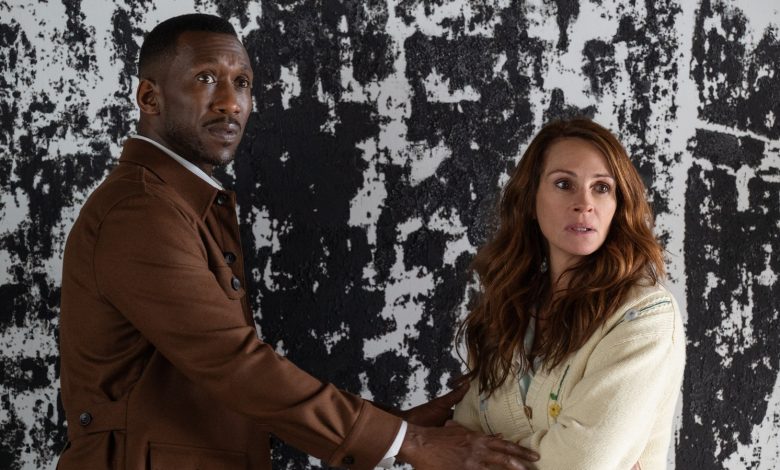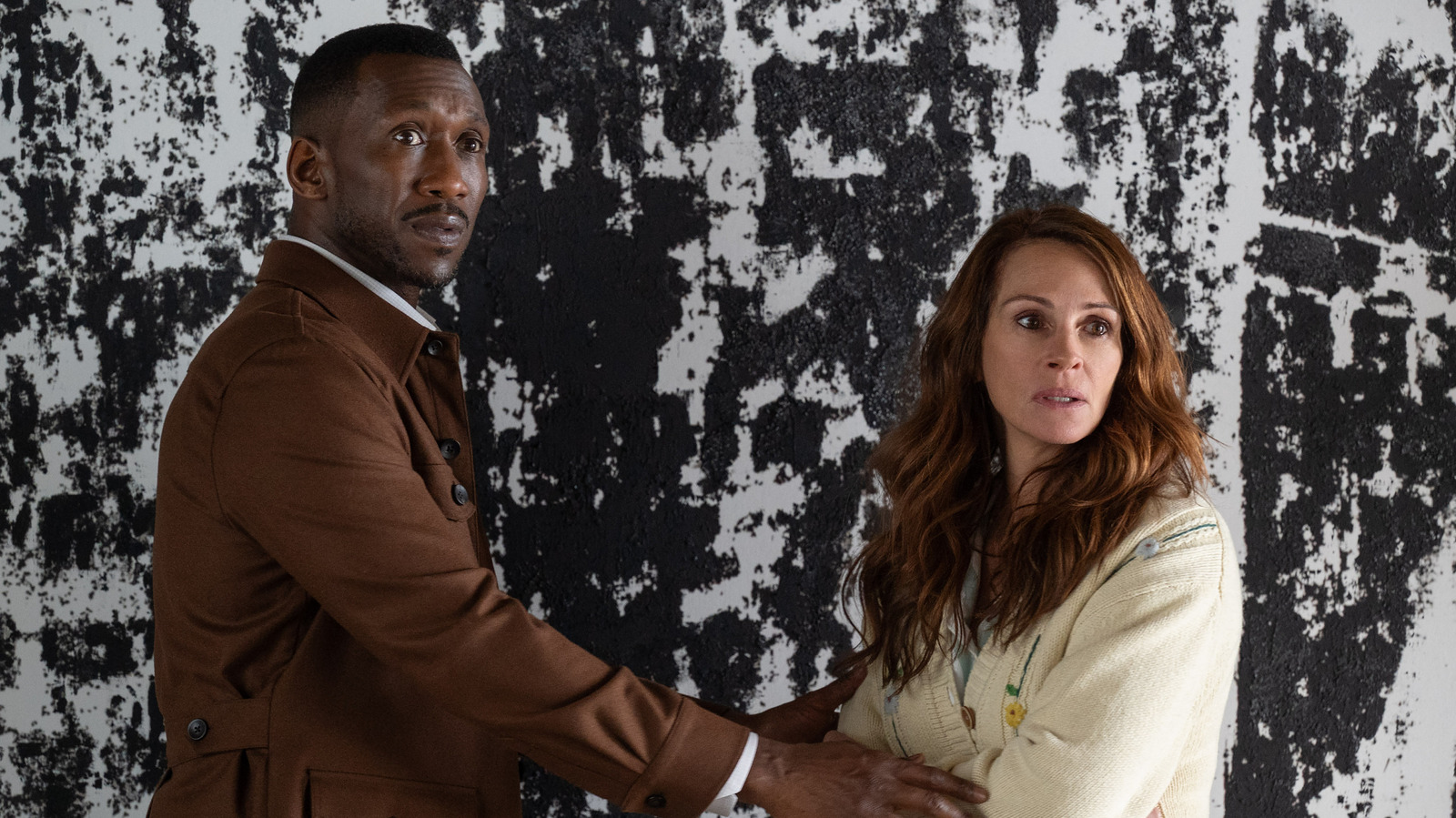Leave The World Behind Review: Another Netflix Fumble


Adapted from Rumaan Alam’s 2020 novel of the same name, “Leave the World Behind” reteams Sam Esmail with Julia Roberts – the Season 1 star of his Prime Video anthology series “Homecoming” — who here stars as matriarch Amanda Sandford, a Brooklyn mom who on a whim decides to whisk her family away for a weekend getaway to Long Island. Their idyllic break soon turns surreal, as a trip to the beach is interrupted by a gigantic ship sailing on shore, prompting everybody to flee; rumors abound that similar incidents have been happening across the country, but almost immediately, the power is cut out, with no way of identifying what’s going on beyond their remote retreat. The property’s owner, G.H Scott (Mahershala Ali), soon turns up in the middle of the night with his daughter Ruth (Myha’la), and this is when Amanda’s paranoia hits breaking point. With everything that’s going on outside, how can these people be trusted?
Perhaps the most surreal moment of Esmail’s film arrives in the opening credits when Barack and Michelle Obama are billed as executive producers — a far cry from the issues-driven documentaries that have become the bread-and-butter of their production company Higher Ground. But because of their cinematic resumes, announcing their involvement with this film up top all but welcomes closer inspection as to how the film handles its weighty themes, to try to work out what they saw within such unashamed genre material. One of the most obvious threads with real-world relevancy is Amanda’s distrust of the father-and-daughter, which only dies down in the second half, and appears to be driven entirely by an unconscious racist bias her family doesn’t share.
This is called out by Ruth, but otherwise remains frustratingly unacknowledged; Roberts’ performance is hardly subtle in its micro-aggressions towards the pair, and the movie doesn’t keep its cards close to its chest about whether we can trust them, which only further exposes her hidden prejudices she’s presumably never acknowledged in the open. Esmail struggles to grapple with the idea that the protagonist of a disaster movie could be anything less than sympathetic considering her circumstances, and this defining aspect of her characterization is unceremoniously dropped midway through to its detriment before it even begins to interrogate it. The paranoia of what’s going on in the outside world increases, which makes the sudden out-of-character decision to start trusting the two people she couldn’t previously bring herself to all the more jarring.




